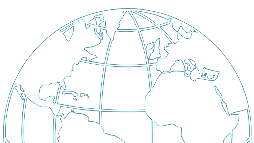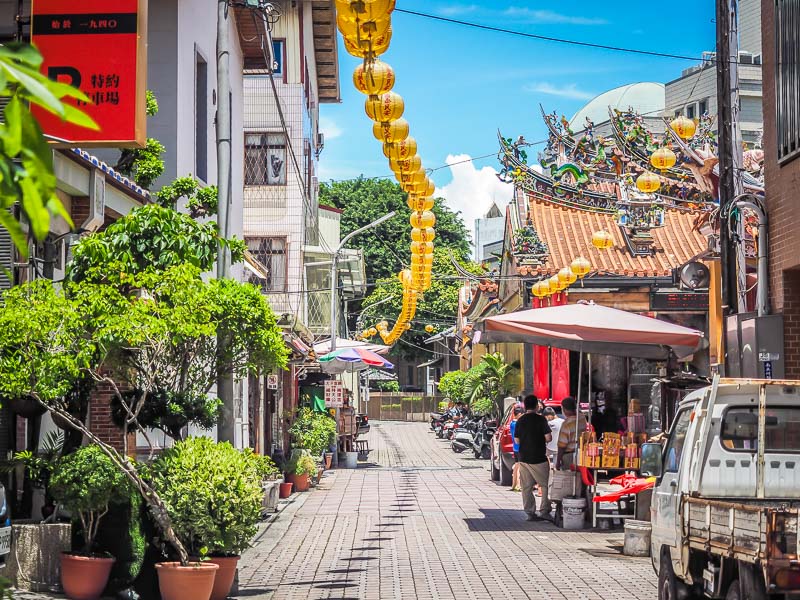
November 3 – 7, 2024
Tainan, Taiwan
Scam Alert:
If anyone contacts you to make a reservation through a third party, please notify ECI.
About This Conference
The aim of this conference is to bring together scientists from diverse disciplines, who are working on mixed conducting and nonstoichiometric compounds across crystalline, amorphous, and polymeric materials. Traditionally, the effects of stoichiometry deviations have been studied by those looking to understand and control the electrical, mechanical, optical and thermal properties. The technological uses for such materials are diverse, including energy storage, catalytic transformation, separations, computing, and bioelectronics.
The use of nonstoichiometric compounds has expanded in recent years. For example, complex oxides that exhibit nonstoichiometric effects are being employed in high Tc superconducting devices and memory devices, Furthermore, driven by the semiconductor industry interest has also expanded to include nitrides, chalcogenides, oxynitrides, oxychalcogenides, etc. Beyond inorganic compounds, mixed conductivity and nonstoichiometry have been recognized in polymers as well as in mixed organic-inorganic crystals.
Given the diverse fields of applications, it is clear that a truly international conference devoted specifically to compounds that display nonstoichiometry and mixed conductivity will allow scientists from these various fields to learn from the other fields and from other approaches, to assess the state of the art, and to discuss future developments.
The first conferences on nonstoichiometric compounds were held at the beginning of the 1980’s. Then, after a break of more than ten years, UEF-sponsored conferences that focused on “Nonstoichiometric Ceramics and Intermetallics” were held in 1998 and 2001, followed by the ECI conferences on “Nonstoichiometric Compounds” in Kauai, Hawaii, USA in 2005 and on Jeju Island, Korea in 2009. The decision to return to the former name of the conference was determined, as noted above, by the desire to reach a wider audience. Contributions on intermetallics will, of course, be welcomed, but the emphasis will be on nonstoichiometric compounds.
The last conference “Nonstoichiometric Compounds” in Miyazaki, Japan, in March 2019, was again very successful, and it was determined that the next meeting will be held in a country in which the conference had not been held previously, with the goal to further expand participation. With an increasing demand for advances nonstoichiometric materials in various fields of science and engineering we expect to run an attractive conference.
The conference will consist of topical sessions on:
- Fundamentals: point defects & local structure
- Fundamentals: extended defects, interfaces and surfaces
- Applications: batteries
- Applications: fuel cells and electrolyzers
- Applications: memory devices
- Applications: bioelectronics & opto-electronics
- Characterizations: high resolution, time resolved and in-situ
- Theory: atomistic
- Theory: continuum and devices
Conference Chairs
Professor William Chueh
Department of Materials Science & Engineering
Stanford University, USA
wchueh@stanford.edu
Professor Kuan-Zong Fung
Department of Materials Science & Engineering
National Cheng Kung University
Taiwan
z8702009@email.ncku.edu.tw
Professor Hitoshi Takamura
Department of Materials Science
Tohoku University, Japan
takamura@material.tohoku.ac.jp
Conference Speakers
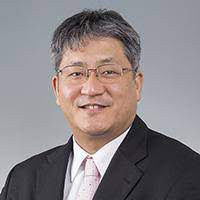
Koji Amezawa
Tohoku University
Japan
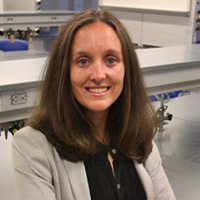
Kelsey Hatzell
Princeton University
USA

Scott Keene
Rice University
USA

Juergen Janek
University of Giessen
Germany

Manfred Martin
RWTH Aachen University
Germany
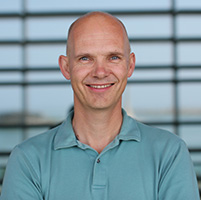
Iain McCulloch
Princeton University
USA
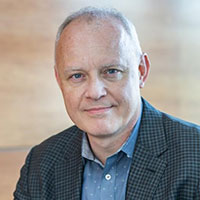
Paul McIntyre
Stanford University
USA

Truls Norby
University of Oslo
Norway
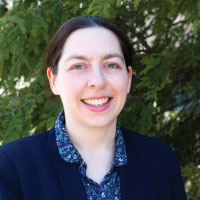
Nicola Perry
University of Illinois
Urbana-Champaign
USA
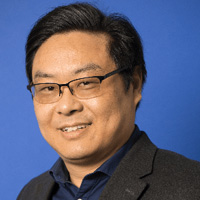
Joshua Yang
University of Southern California
USA

Alberto Salleo
Stanford University
USA

Bing Joe Hwang
National Taiwan University
Taiwan
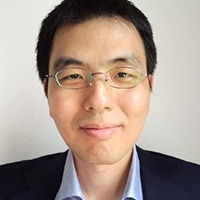
Chia-Chin Chen
National Taiwan University
Taiwan
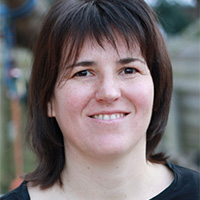
Monica Burriel
Institut Polytechnique de Grenoble
France
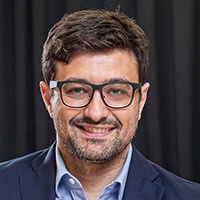
Francesco Ciucci
University of Bayreuth
Germany
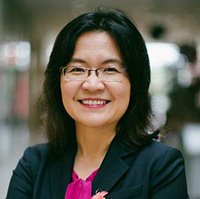
Yue Qi
Brown University
USA
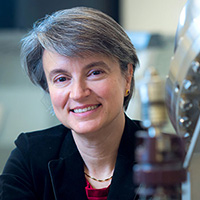
Bilge Yildiz
MIT
USA
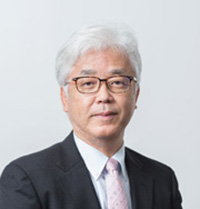
Kazuya Terabe
National Institute for Materials Science
Japan
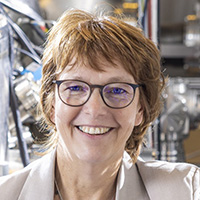
Regina Dittmann
Forschungszentrum Jülich GmbH
Germany
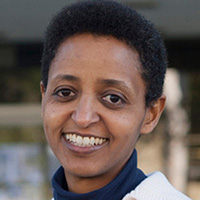
Sossina Haile
Northwestern University
USA
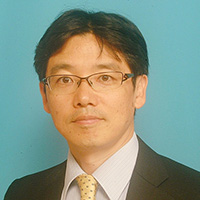
Hiroshi Kageyama
Kyoto University
Japan
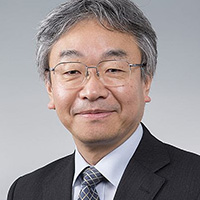
Tatsuya Kawada
Tohoku University
Japan

Micaela Matta
King’s College London
England
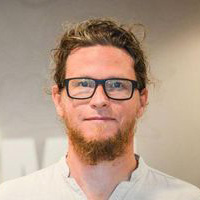
David Mebane
West Virginia University
USA
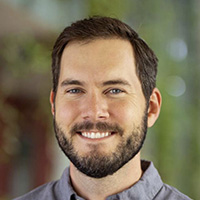
Tyler Mefford
UC Santa Barbara
USA
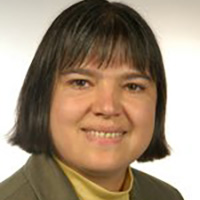
Rotraut Merkle
Max Planck Institute Stuttgart
Germany

Ryan O’Hayre
Colorado School of Mines
USA

Dmitri Strukov
UC Santa Barbara
USA
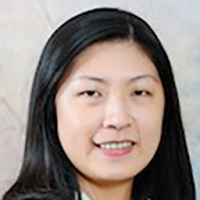
Pei-Chen Su
Nanyang Technological University
Singapore

Hong-Kang Tian
National Cheng Kung University
Taiwan
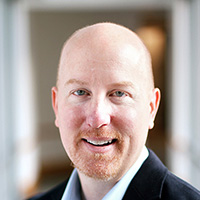
Chris Wolverton
Northwestern University
USA
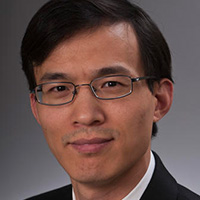
Qiangfei Xia
University of Massachusetts
USA
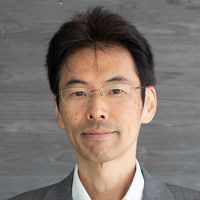
Yoshi Yamazaki
Kyushu University
Japan
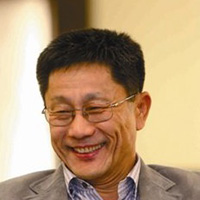
Han-Ill Yoo
Seoul National University
Korea
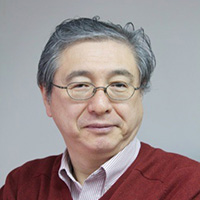
Shu Yamaguchi
University of Tokyo
Japan
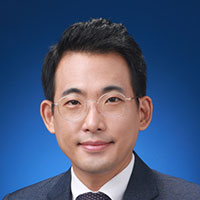
WooChul Jung
Seoul National University
Korea
Conference Series History
Nonstoichiometric Ceramics and Intermetallics (1998)
Jules Routbort, Rudiger Dieckmann, and Thomas Mason
Kona, Hawaii
Nonstoichiometric Ceramics and Intermetallics II (2001)
Rudiger Dieckmann and C.T. Liu
Barga, Italy
Nonstoichiometric Compounds III (2005)
Manfred Martin, Thomas O. Mason, and Junichiro Mizusaki
Kauai, Hawaii
Nonstoichiometric Compounds IV (2009)
Han-Ill Yoo, Shu Yamaguchi, Juergen Janek, and Sossina M. Haile
Jeju Island, Korea
Nonstoichiometric Compounds V (2012)
Juergen Janek, Lorenzo Malavasi, Tatsuya Kawada, and Ryan O’Hayre
Sicily, Italy
Nonstoichiometric Compounds VI (2016)
Ryan O’Hayre, Juergen Janek, Yoshihiro Yamazaki
Santa Fe, New Mexico, USA
Nonstoichiometric Compounds VII (2019)
Hitoshi Takamura, Roger De Souza, Ryan O’Hayre
Miyazaki (Kyushu Island), Japan
Call For Abstracts
Topical Sessions:
- Fundamentals: point defects & local structure
- Fundamentals: extended defects, interfaces and surfaces
- Applications: batteries
- Applications: fuel cells and electrolyzers
- Applications: memory devices
- Applications: bioelectronics & opto-electronics
- Characterizations: high resolution, time resolved and in-situ
- Theory: atomistic
- Theory: continuum and devices
You may pick one or two sessions that you feel your work fits best.
- Oral and Poster abstract deadline: August 31, 2024
- Abstract acceptance notification sent on: August 31, 2024
To ensure receipt of mailings regarding your submission, please add ‘do_not_reply@linklings.com‘ to your address book.
- Abstracts (one page maximum) that include specific results and conclusions to allow a scientific assessment of the proposed oral presentation are invited.
Please prepare your abstract according to this template: docx or doc.
All abstracts should be submitted electronically HERE.
Only a limited number of oral presentation slots are available and thus all submissions for oral sessions will be considered for both oral and poster presentation.
Poster size: Your poster should be no larger than 1.5 meter high and 1.0 meter wide (Portrait Style)
Abstracts of all presentations will be made available to conference participants prior to the start of the conference.
Conference Fees
ALL PARTICIPANTS (INCLUDING MEMBERS OF THE ORGANIZING COMMITTEE AND INVITED SPEAKERS) ARE REQUIRED TO REGISTER.
Hotel reservations are made separately. See information below for recommended local hotels.
The conference fee includes the following: conference registration, lunches and dinners, coffee breaks, social hour during the poster session, excursion, and taxes from welcome reception/dinner on Sunday (November 3) through lunch on Thursday (November 7).
If you plan to arrive prior to Sunday or stay at the hotel after the conference, please note this when you make your hotel reservation.
The conference fees are:
| Register on or before October 3, 2024 | Register after October 3, 2024 | |
| Participant | US $1,455 | US $1,555 |
| Bona fide Graduate Student. (Those in this category must upload proof of current status during registration – copy of current Student ID or a letter from your University confirming your student status) | US $1,140 | US $1,240 |
| **Fees for Guest/accompanying person. (Note that coffee breaks are not included for guests.) | US $350 | US $350 |
If you plan to bring children to the conference, please contact Renee Smith for pricing.
Conference Registration
You will need a login name and password to register for ECI conferences through our online system. If you have been a recent participant at an ECI conference or have submitted an online application or request for information about an ECI Conference, you may already have an account with us. If you know your login information, please use it.
If you are not sure whether you already have a login and password, please click on automated password retrieval and enter your e-mail address before creating a new account. If we don’t have a valid email address on file for you, a pop-up window will appear stating that no records were found. Click “OK” and then follow the instructions to create a new account.
If you have any questions or experience any difficulties, please email Renee Smith.
Instructions

Recommended Local Hotels
Important Note: Lodging is not included in the registration fee for this conference. All technical sessions and poster sessions will be held at National Cheng Kung University as will be the lunches, coffee breaks and Monday dinner. Conference check-in, opening reception and dinner will be held at the Shangri-La Hotel which is adjacent to the NCKU campus. Conference participants are free to choose a hotel of their choice. The three hotels recommended by the local organizers are listed below. You must make your reservation directly with the hotel of your choice. Conference registration is done separately.
Shangri-La Far Eastern Plaza, Tainan
#89 West Section, University Road, (Dong District, East District) Tainan 70146 Taiwan
This hotel is located in the heart of downtown Tainan and is the first internationally affiliated deluxe hotel outside Taipei which offers an ideal base for both business and leisure travelers. It is located adjacent to the university where the conference sessions will be held. The hotel has the largest guest rooms among Tainan hotels, with various choices of restaurants and first-rate facilities and services. It offers a concierge, free parking, air conditioning, a pool, bar/lounge, free high speed internet, mini-bar, good work desk, amazing breakfast buffet, and shuttle services. It is just 100 meters from the Tainan local train station. The hotel is connected to a mall and there are plenty of surrounding local eateries.
For room information: Luxury Hotel in Tainan | Shangri-La Far Eastern, Tainan
For reservations: Download the Shangri-La Hotel Form [PDF]
Map From Shangri-La Far Eastern Plaza to NCKU International Conference Room
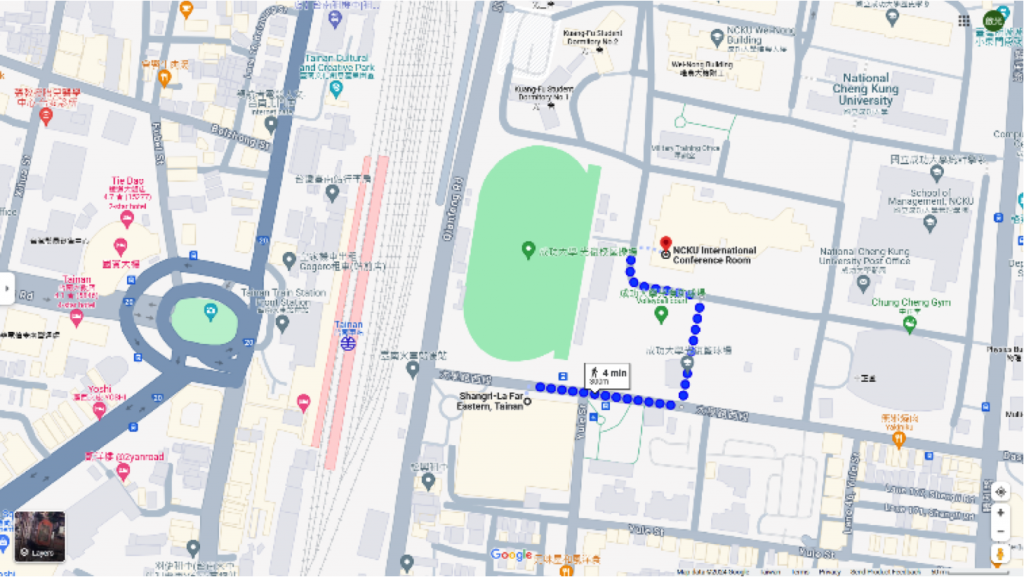
Hotel Tainan
#1, Chenggong Road, West Central District, Tainan 700 Taiwan
The Hotel Tainan faces toward Tainan Railway Station and the most popular department stores, SHIN KONG MITSUKOSHI and Focusquare are a couple blocks away. The Tainan City Park and The National Cheng Kung University are within walking distance. Hotel Tainan has 152 rooms including comfortable rooms and suites that provide both businesses’ and tourists’ stays. There is a business center and the hotel restaurants are HACCP-certified, ensuring food safety and sanitary facilities. The hotel features fresh handmade Chinese and western cuisine. The hotel is quite proud of the installation art which graces the hotel.
For reservations, please visit the website: https://www.hotel-tainan.com.tw/en/spot/
(Academy Hotel) Zenda Suites
#2 Dasyvue Road (East District), Tainan 701 Taiwan
The hotel is located near the university where the conference sessions will be held. It offers relaxing rooms with air conditioning and free high speed internet, room service, fitness center, a desk, sofa, blackout curtains, free parking, laun dry room and an on-site restaurant.For reservations, please visit the website: https://www.academyhotel.com.tw/en
Venue Information
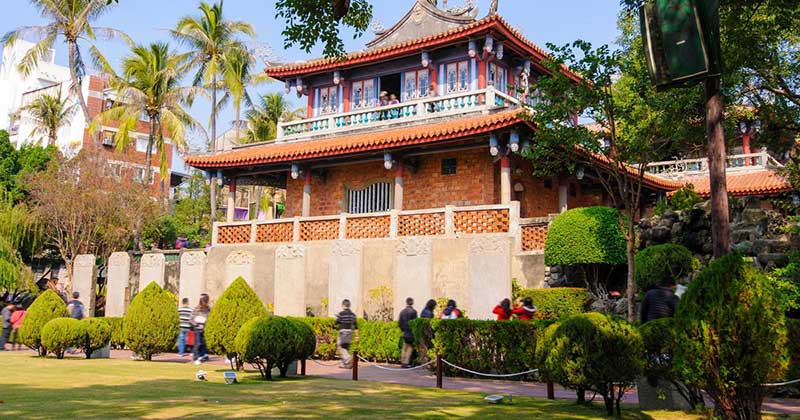
Tainan, on Taiwan’s southwest coast, was the island’s capital from 1683–1887 under the Qing dynasty. The climate is warm year-round. Today it’s known for its centuries-old fortresses and temples and is known as the – Capital of Taiwan. One of its most famous sites is Chihkan Tower, an 18th-century Chinese complex with gardens, intricately carved towers and a temple erected on the foundations of Fort Provintia, a Dutch outpost dating to the mid-1600s. It is the oldest city on the island and also commonly known as the “Capital City” for its over 200 years of history as the capital of Taiwan under Koxinga and later Qing rule. Tainan’s complex history of comebacks, redefinitions and renewals inspired its popular nickname “the Phoenix City”. It is famous for its diversity and density of temples and shrines. Some of them are the only of its kind on Taiwan. There are seven Buddhist temples and eight Taoist shrines.
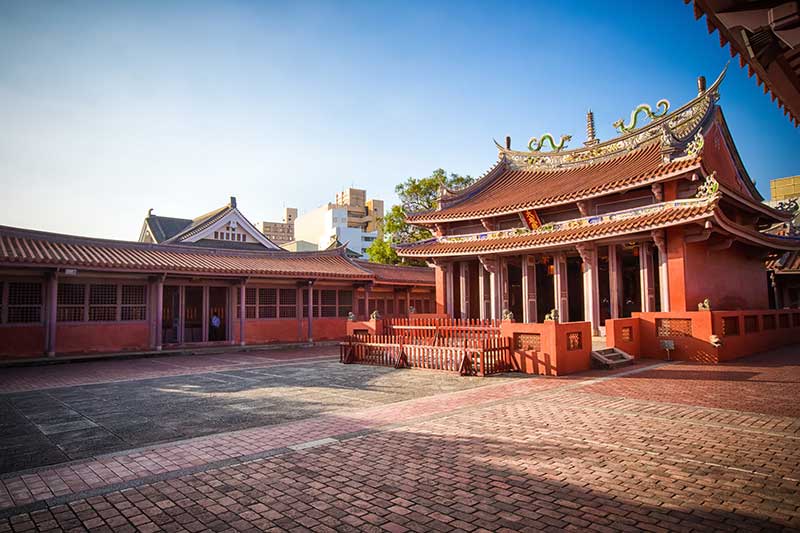
The Tainan Confucius Temple is listed as a national historic site and was built in 1665. It is Taiwan’s oldest Confucius temple and became the place of education for cultivating talents, signifying the establishment of Taiwan’s formal education.
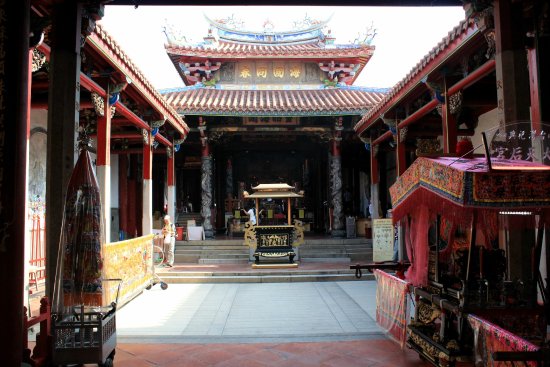
Tainan Grand Mazu Temple is Taiwan’s first officially built Mazu Temple. Mazu is a Chinese sea goddess and is the deified form of Lin Moniang, a shamaness from Fujian who is said to have lived in the late 10th century. After her death, she became revered as a deity of Chinese seafarers, including fishermen and sailors. The grand Mazu Temple, which has been protecting Tainan for more than a hundred years, is the center of belief for the people of Tainan. Today, Tainan Grand Mazu Temple is also a national historic site.
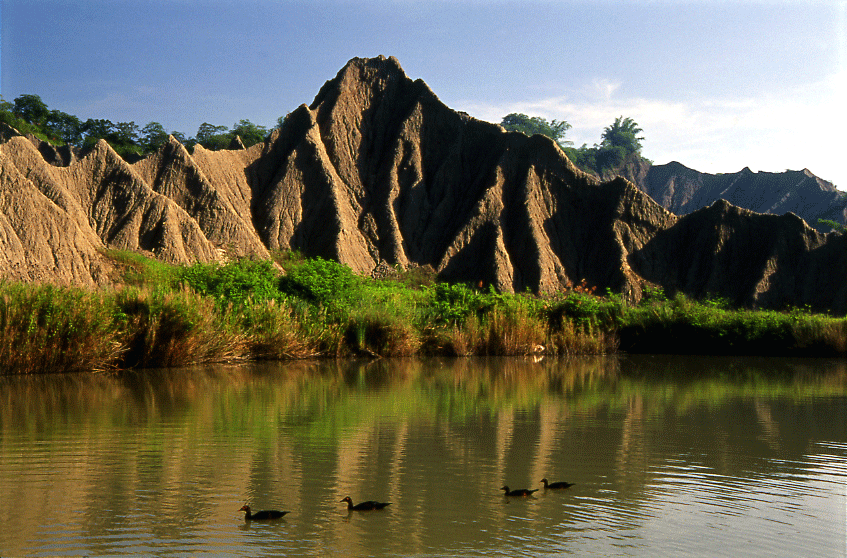
An interesting geological site is Caoshan Moon World at Zuozhen District, Tainan City. It is a terrain of slate-grey mudstone that consists of sandstone and shale. It connects with the nearby mudstone badlands to form a landscape of mostly chalk soil. Highly alkaline chalk soil makes it nearly impossible for vegetation to grow here. It feels as hard as rock when it is dry and becomes muddy after rain. The rain washes and cuts the surface of the terrain, leaving geological features such as half-sides of mountains, deep valleys, winding streams. Only plants with the greatest vitality are able to survive this badland. Apart from barren land, there are only thorny bamboos and weeds seen within the nearly one thousand hectors of area, thus forming the most typical terrain of moon world. It is a popular place for appreciating the setting sun.
The connected peaks of chalk soil hills that pile up one layer beyond another and the boundless and majestic terrain of the Moon World are a unique geographic landscape.
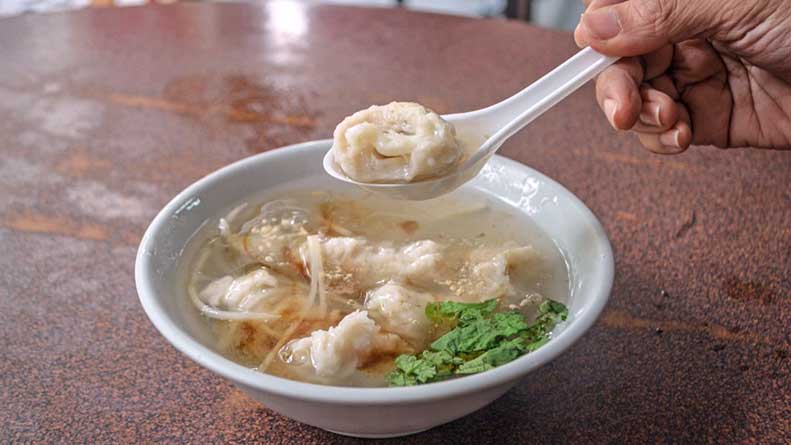
In addition to its historic and cultural attractions, Tainan boasts a stunning natural landscape and well-known agricultural and fishery products and cuisine. Taipan’s fresh and sweet flavors originate from its thriving sugar industry in the early days. Some of the favorite foods are the clear and sweet beef soup and the sweet and aromatic rice cake. Tainan City is the home of numerous fruits, where fresh seasonal fruits are available throughout the year, including mangoes in summer and strawberries in winter. Fruit desserts taken with ice desserts, tea and cake, are not to be missed delicacies while traveling in Tainan.
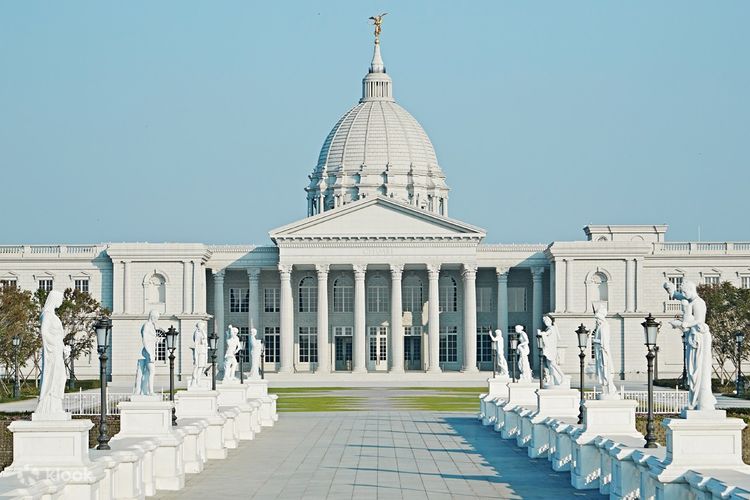
The Chimei Museum is a private museum whose collection is divided into five categories: Fine arts (including painting, sculpture, decorative arts and period furniture); Musical instruments; Natural history and fossils; Arms and armor; Antiquities and artifacts. The museum is known for housing the world’s largest violin collection and for its significant collections of ancient weapons and sculptures.
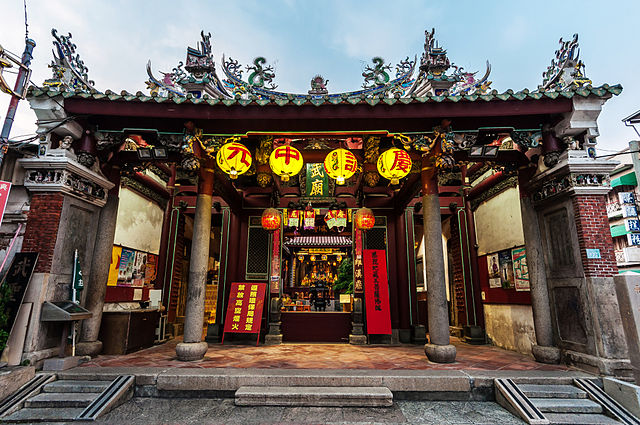
The oldest and most impressive temple in Taiwan is dedicated to Guandi (Guan Gong), a Han-dynasty general deified as the God of War. He is the patron of warriors and those who live by a code of honor. The temple’s overall structure was established in 1690 although much splendid artwork and many historically valuable objects have been added over the years. The long, deep-rose-colored walls of this temple have always been one of its highlights.
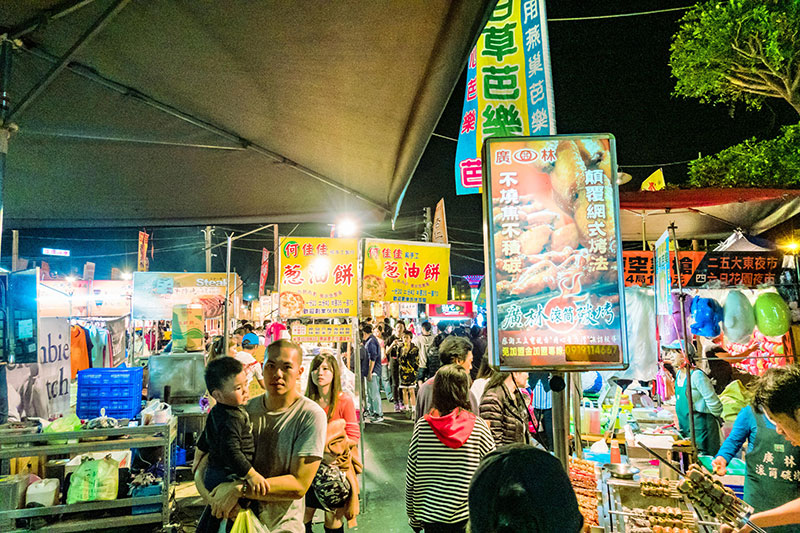
Night markets in Taiwan are an absolute institution and an important part of the culture for many centuries. Night markets in Tainan in southern Taiwan are arguably some of the best and most original and are famous throughout the country. They’re located outside of the city center and are only open on one or possibly a few days per week and are located in massive pedestrian-only areas (usually large parking lots) where stalls are set up temporarily at night. As Tainan is considered to be the food capital of Taiwan, the night markets are the best way to experience Tainan-style Taiwanese street food. The most famous night markets: Garden (also called Flower) with approximately 400 stalls; Ta-Tung (also spelled Dadong) with about 350 stalls; Wusheng (250 stalls); Xiaobei Chenggong; and Xin Yong Hua. Each is unique in its own way. In addition to food, there are games and souvenirs.
Transportation
| Transportation Options: Taipei to Tainan | EstimatedTravel Time | Estimated Ticket Price |
| Taiwan High speed rail https://en.thsrc.com.tw | 1h 45 m | US $35-45 |
| Taiwan Railway (slow train) https://www.railway.gov.tw/tra-tip-web/tip?lang=EN_US | 3.5 – 4 hrs | US $16–24 |
| Bus Taipei Station to Tainan (Binggongchang Station) https://www.taiwanbus.tw/eBUSPage/Default.aspx?lan=E | 4 hr 20 min | US $14-20 |
Your trip from Taipei will be a total of 64 miles (102 km and the cost of travel will depend on the means of transport. The quickest option but most expensive option is the high-speed rail (1 hour and 45 minutes – as much as US$115 in late 2023). There are also trains that take approximately 3 hours at a cost of approximately US$35. The least expensive option is the bus (approximately US$16) and that takes longer as it makes multiple stops along the way. There are approximately 31 trains each day. Their website provides information in Chinese, Japanese and English.
The regular railway takes approximately 3 hours. Tainan has direct flights to and from Hong Kong and Osaka.
General Information About ECI
Engineering Conferences International (ECI) is a not-for-profit, global engineering conferences program, originally established in 1962 that provides opportunities for the exploration of problems and issues of concern to engineers and scientists from many disciplines. Over 2000 interdisciplinary conferences have been held.
The format of the conference provides morning and late afternoon or evening sessions in which major presentations are made. Poster sessions will be scheduled for evening discussion as well. Available time is included during the afternoons for ad hoc meetings, informal discussions, and/or recreation. This format is designed to enhance rapport among participants and promote dialogue on the development of the meeting. We believe the conferences have been instrumental in generating ideas and disseminating information to a greater extent than is possible through more conventional forums.
All participants are expected both to attend the entire conference and to contribute actively to the discussions. The recording/photographing of lectures and presentations is forbidden. As ECI conferences take place in an informal atmosphere, casual clothing is the usual attire.
Smoking is prohibited at ECI conferences and conference functions.
